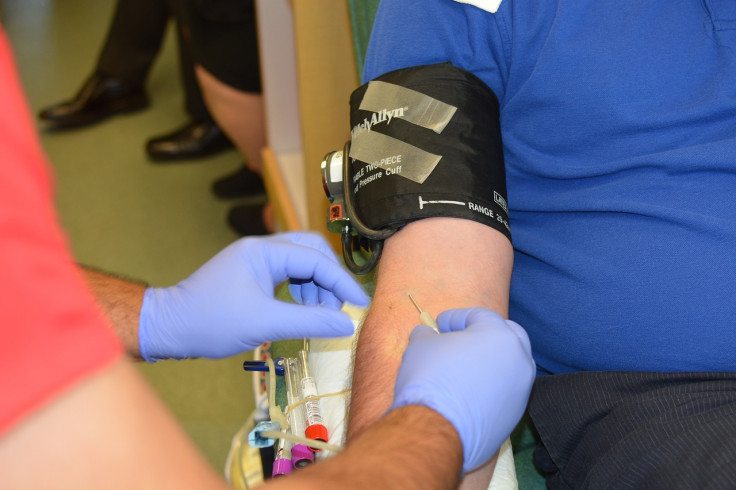
The American Red Cross has declared an emergency blood shortage in the country as blood donations hit an all-time low in the last 20 years.
The number of people donating blood through the American Red Cross, which contributes to about 40% of the country's supply of blood and blood components, has fallen by about 40% in the past two decades, the agency said in a news release.
The organization faced a shortfall of nearly 7,000 units of blood due to disruptions in the blood donation process between Christmas and New Year's Day.
"There is more need for blood at hospitals than we are able to provide at current donation levels and this is an issue that is really... a long-term problem. To put the numbers in perspective, we need an additional 8,000 donations every week in January in order to meet current hospital needs," said Dr. Eric Gehrie, medical director at the American Red Cross.
According to the data from America's Blood Centers, 17 community blood centers have a critically low supply (a one-day supply or less) of blood.
"Additional challenges lie ahead as winter weather and seasonal respiratory illnesses like the flu and COVID-19 may affect future donor turnout compounding the dire blood supply situation that the nation currently faces," the news release read.
The blood supply does not match the demand in the country because only 3% of age-eligible people donate blood yearly in the U.S.
Several factors have contributed to the reduced donations, including remote work style after COVID-19, which has made hosting blood drives challenging. People willing to donate are deferred on certain occasions due to factors such as low iron levels, hemoglobin levels or travel restrictions. However, these donors may not realize they may be able to donate at a future time, Dr. Gehrie said.
"One of the most distressing situations for a doctor is to have a hospital full of patients and an empty refrigerator without any blood products. A person needs lifesaving blood every two seconds in our country — and its availability can be the difference between life and death, however, blood is only available thanks to the generosity of those who roll up a sleeve to donate," said Dr. Pampee Young, chief medical officer of the Red Cross.
Who can donate blood?
"Individuals who are 17 years of age in most states (16 with parental consent where allowed by state law), weigh at least 110 pounds, and are in generally good health may be eligible to donate blood," the agency said.
To ensure the safety of donors, the Red Cross checks the hemoglobin levels before accepting blood. Women must have a minimum hemoglobin level of 12.5g/dL and men must have a minimum level of 13.0g/dL. A donor's hemoglobin level should not be higher than 20.0g/dL.
A person can donate blood every 56 days, up to six times a year. If you are to donate blood, you need a blood donor card or driver's license, or two other forms of identification.







